|
|
|
Книги издательства «Boydell & Brewer»

|
Este libro analiza las discontinuidades de los postulados ideologicos del sistema revolucionario cubano, en un corpus representativo de la narrativa cubana contemporanea, desde 1990 hasta la actualidad. Este ensayo se ocupa del estudio de subjetividades sexuales alternativas como instrumentos desestabilizadores de la hegemonia nacional. Asimismo, estos textos desarticulan y, a menudo, difuminan los referentes nacionales, con el proposito de legitimar estas identidades marginales, previamente consideradas como incompatibles con la moral revolucionaria. En consecuencia, este volumen resalta las contradicciones de aparatos politicos y culturales que han percibido historicamente las sexualidades alternativas como injuriosas, aunque estas fueran utilizadas como el opuesto necesario que afirmaba y legitimaba el poder. El periodo estudiado ha coincidido con el surgimiento de una apertura gradual en material sexual que sugeriria cierto afan de adaptacion oficial y controlada, con miras a nuevas realidades nacionales y globales. En este sentido, estas practicas culturales contemporaneas se apuntalan, mas que nunca, como herramientas de construccion de una Cuba posible. Patricia Valladares-Ruiz es Assistant Professor of Romance Literatures and Literatures en la University of Cincinnati. |

|
In the French village of Segonzac in 1796, weaver Thomas Bordas spoke out during a municipal ceremony. Frustrated by how stifling the politics of the Revolution had become, he proposed a show of hands: who wants a republic, and who wants a king? Soon after, he was arrested and charged with attempting to reestablish the monarchy. Drawing on archival sources ranging from village council minutes and reports of government spies to investigations into sedition and seditious speech, A Show of Hands for the Republic provides a new account of the politicization of the French peasantry from the early eighteenth century through the Revolution. Jill Maciak Walshaw demonstrates here that villagers were well-informed and outspoken on political issues. In addition, though the political authorities characterized peasants as ignorant and easily manipulated, Walshaw shows that the ruling elite also carefully monitored and suppressed their opinions, revealing a contradiction in the governing practices of the state. By documenting the lively political forum that existed in eighteenth-century rural France, this study challenges not only the bourgeois nature of the public sphere, as defined by Jürgen Habermas, but also the notion that it was predominantly urban. A Show of Hands for the Republic presents a fresh understanding of rural political culture, one in which villagers responded to revolutionary change with their own agenda and came to play a new role on the political stage. Jill Maciak Walshaw is assistant professor of history at the University of Victoria, British Columbia. |
|